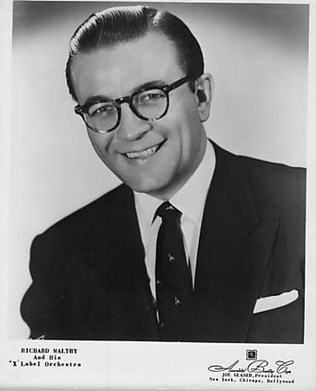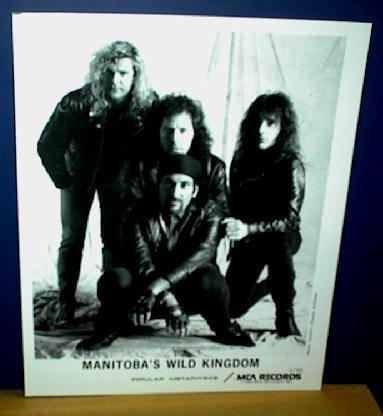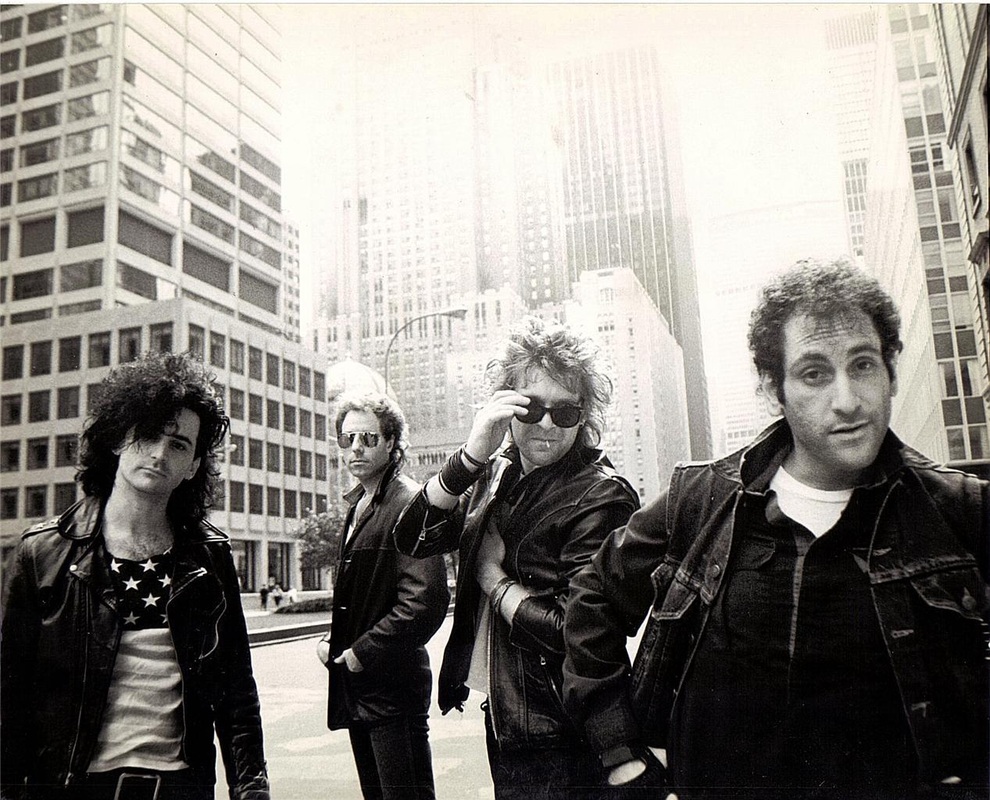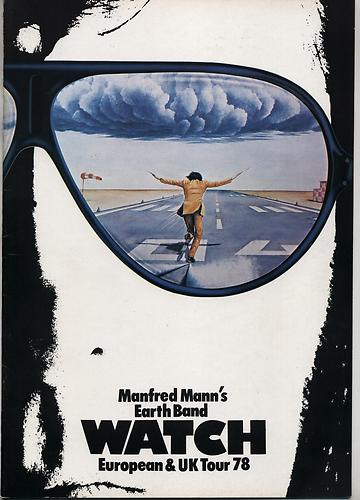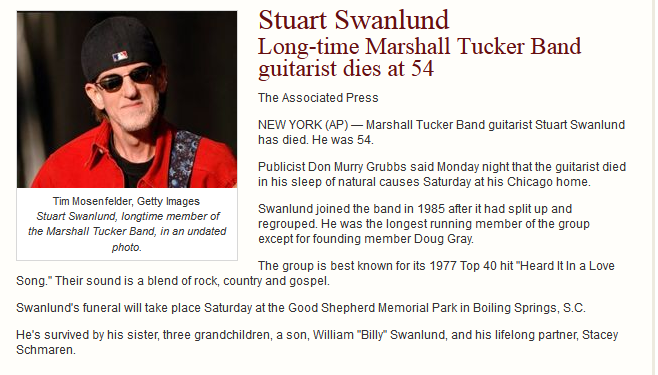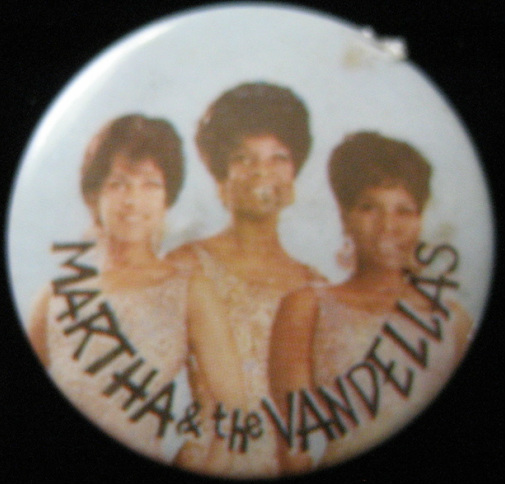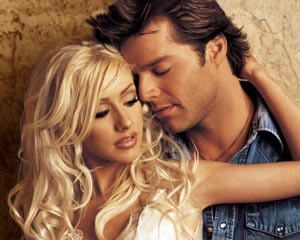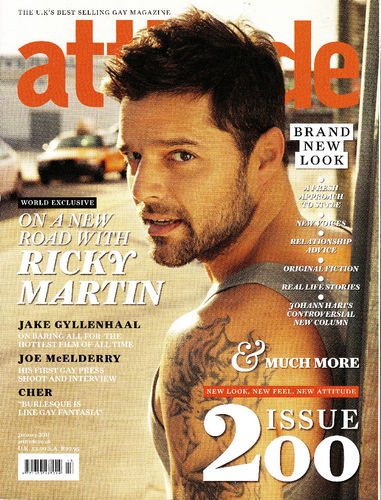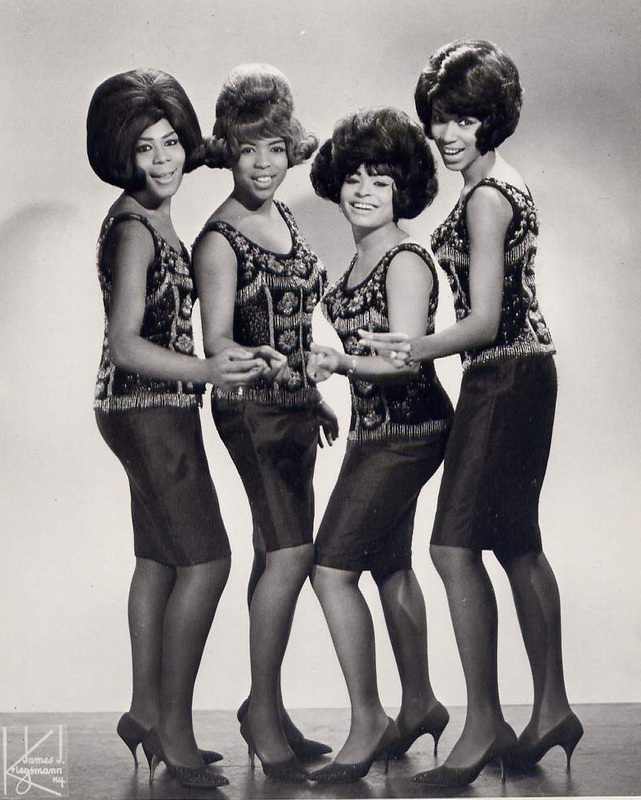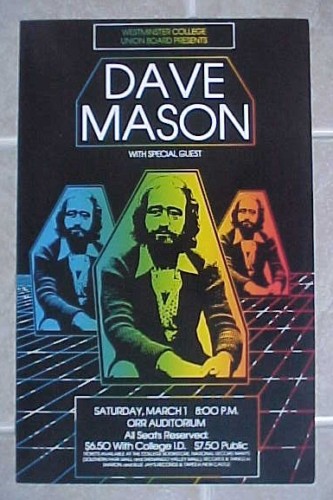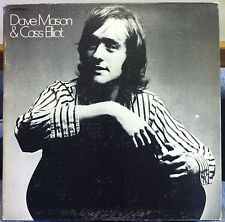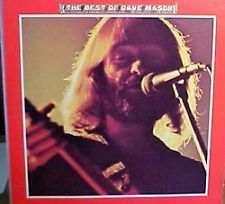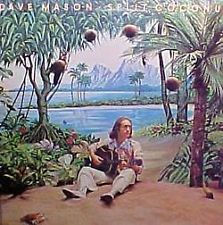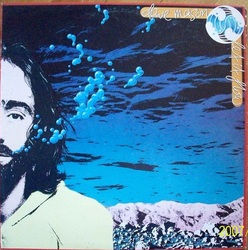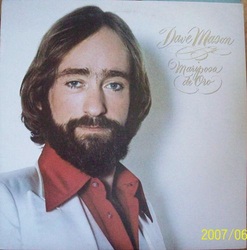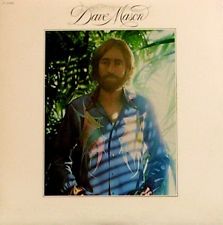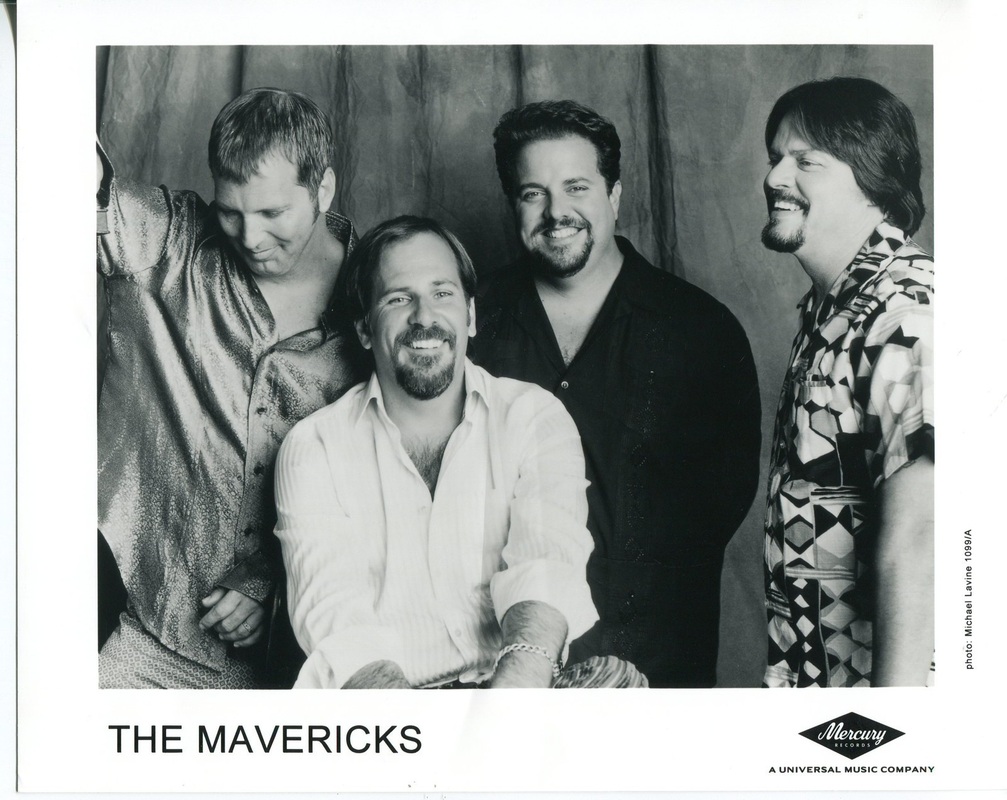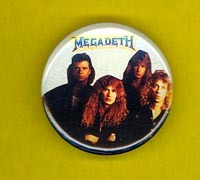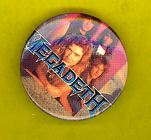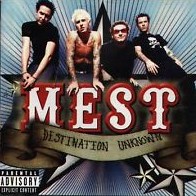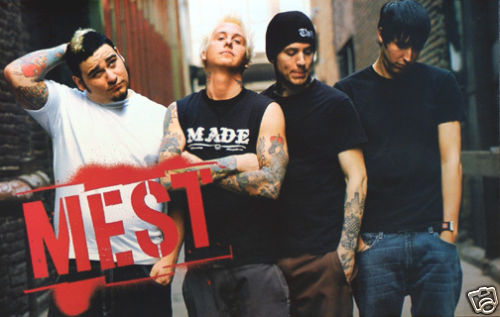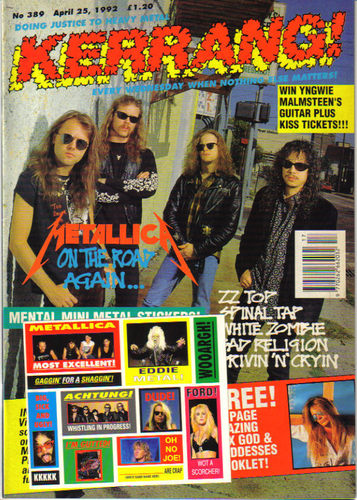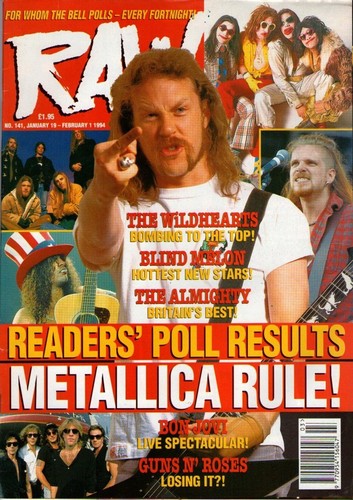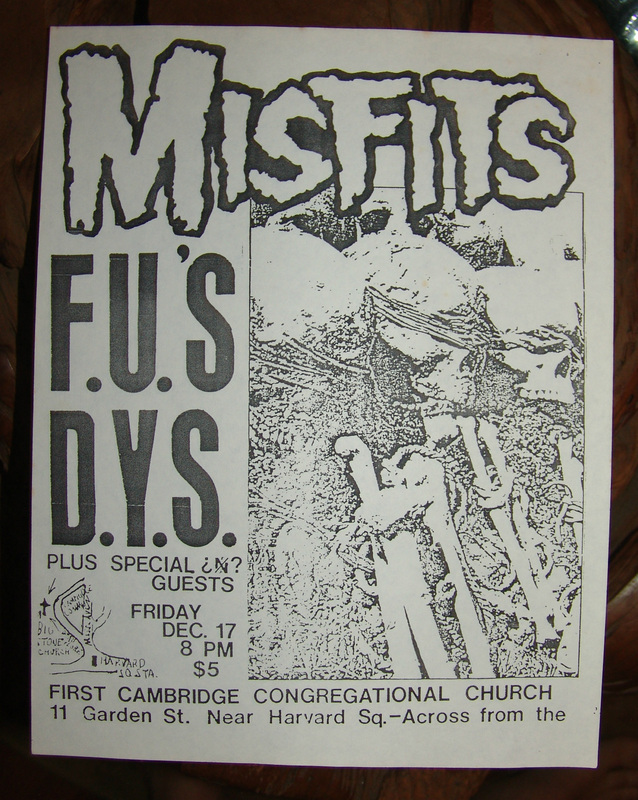>> Madonna <<
|
Richard Eldridge Maltby, Sr. (June 26, 1914 – August 19, 1991) was an American musician, conductor, arranger and bandleader, most notable for his 1956 recording (Themes From) The Man With the Golden Arm". He was also the father of the Broadway lyricist and director Richard Maltby, Jr.
After studying briefly at Northwestern University's music school, he left college to become a full time musician. He played trumpet with several big bands, including those of Little Jack Little, Roger Pryor, Bob Strong and Henry Busse, as well as also doing some arranging. In 1940, he took a job as an arranger for the orchestra of the Chicago-based radio station, WBBM, before moving to New York in 1945 to become an arranger-conductor on network radio, where he worked with Paul Whiteman. In 1942, Benny Goodman recorded his composition "Six Flats Unfurnished." During the post-war years, he made several recordings for subsidiary labels of RCA Victor, and in 1954, finally scored a Top 40 hit with "St. Louis Blues Mambo". In 1955, he began leading his own dance band, with which he had his Top 20 hit, "(Themes From) The Man With the Golden Arm," in the spring of the following year. He left RCA for Columbia Records in 1959, then moved to Roulette Records a year later. He stopped recording on his own during the mid-1960s. |
He was also the musical director of SESAC Jazz Classics between 1950 and 1965, and recorded several transcriptions for radio. As a conductor, he worked with singers such as Peggy Lee, Sarah Vaughan, Johnnie Ray, Vic Damone and Ethel Merman, and after he stopped recording on his own, he served as an arranger and conductor for Lawrence Welk on records and television.
A heart condition in his later years forced him into retirement, and he underwent several operations prior to his death. He died in 1991, aged 77. |
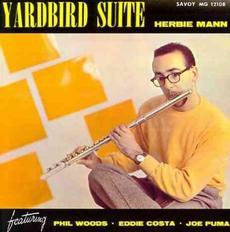
Yardbird Suite UPC: 4988001419402 Personnel: Herbie Mann (tenor saxophone, flute); Phil Woods (alto saxophone); Eddie Costa (vibraphone, piano); Joe Puma (guitar); Wendell Marshall (bass); Bobby Donaldson (drums).Recorded on May 14, 1957.Recorded in the great year of music and especially jazz -- 1957 -- Herbie Mann at the time was gaining momentum as a premier flute player, but was a very competent tenor saxophonist. Teamed here with the great alto saxophonist Phil Woods and criminally underrated vibraphonist Eddie Costa, Mann has found partners whose immense abilities and urbane mannerisms heighten his flights of fancy by leaps and bounds. Add to the mix the quite literate and intuitive guitarist Joe Puma, and you have the makings of an emotive, thoroughly professional ensemble. The legendary bass player Wilbur Ware, who in 1957 was shaking things up with the piano-less trio of Sonny Rollins and the group of Thelonious Monk, further enhances this grouping of virtuosos on the first two selections. Ware spins thick, sinuous cables of galvanized steel during the Mann penned swinger "Green Stamp Monsta!" with the front liners trading alert phrases, and into his down-home Chicago persona, strokes sly, sneaky blues outlines surrounding Mann's tenor and the alto of Woods in a lengthy jam "World Wide Boots." Bassist Wendell Marshall and drummer Bobby Donaldson step in for the other six selections, with three originals by Puma set aside from the rest. "One for Tubby" (for Brit Tubby Hayes) has Mann's flute in a gentle tone as Woods and Costa chirp away while keeping the melody going. The midtempo bopper "Who Knew?" (P.S.; the phrase was coined long ago before its contemporary hipness) is shaded by Costa and deepened by the colorful saxes, and the excellent "Opicana," is a complex and dicey chart, showing the most inventive side of this group and Puma's fertile imagination. You also get the quintessential bop vehicle "Yardbird Suite" with the classic flute and vibes lead spurred on by the alto talkback of Woods. An early version of the enduring, neat and clean bop original "Squire's Parlor" from the book of Woods in inserted. Costa's "Here's That Mann," brims with swing and soul from the perfectly paired, harmonically balanced saxes, demonstrably delightful as the horns, especially the celebrated altoist, step up and out. This is not a complete reissue from the original Savoy LPs The Jazz We Heard Last Summer and Yardbird Suite. One wonders why more tracks could not be included as the CD clocks in at 50 1/2 minutes.
>> Bob Marley <<
>> Dean Martin <<
|
David Thomas "Dave" Mason (born 10 May 1946) is an English singer-songwriter, and guitarist from Worcester, who first found fame with the rock band Traffic. In his long career, Mason has played and recorded with many of the era's most notable rock musicians, including Jimi Hendrix, Delaney Bramlett, Michael Jackson, The Rolling Stones, Eric Clapton, George Harrison, Fleetwood Mac and Cass Elliot. Mason's best known song is "Feelin' Alright", recorded by Traffic in 1968 and later by many other performers, including Joe Cocker, who had a major hit with the song in 1969. For Traffic, he also wrote "Hole in My Shoe", a psychedelic pop song that became a hit in its own right. "We Just Disagree", Mason's 1977 solo hit written by Jim Krueger, has become a staple of Classic Hits and Adult Contemporary radio playlists.
In 2004, Mason was inducted into the Rock and Roll Hall of Fame as a founding member of Traffic. |
>> Paul McCartney <<
|
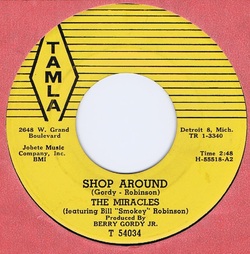
R&B vocal group formed in Detroit, Michigan. Original line-up comprised of Smokey Robinson, Claudette Rogers, Bobby Rogers, Ronnie White and Warren Moore. Claudette Rogers retired in 1964; married to Smokey Robinson from 1958-86. Bobby Rogers married Wanda Young of The Marvelettes. Robinson wrote many hit songs for the group and other Motown artists. Robinson went solo in 1972; replaced by Billy Griffin. Ronnie White died of leukemia on Aug. 26, 1995, age 56. -The Miracles, later Smokey Robinson & The Miracles released a string of well crafted rhythm & blues singles for the Tamla Record label between 1960-75 including Shop Around (1960), You've Really Got A Hold On Me (1962), Mickey's Monkey (1963), Ooo Baby Baby (1965), The Tracks Of My Tears (1965), My Girl Has Gone (1965),Going To A Go-Go (1965) and Love Machine (Part 1) (1975).
-Then as Smokey Robinson & The Miracles between 1967-72 with I Second That Emotion (1967), Baby, Baby Don't Cry (1969) and The Tears Of A Clown (1970) among others.
-Then as Smokey Robinson & The Miracles between 1967-72 with I Second That Emotion (1967), Baby, Baby Don't Cry (1969) and The Tears Of A Clown (1970) among others.


